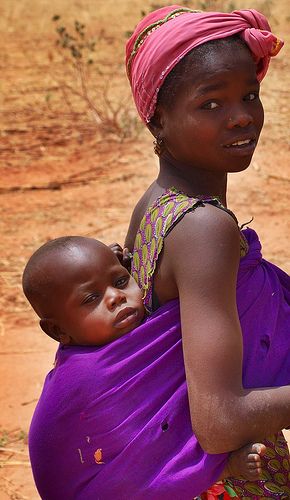
Jared
Diamond contrasts our modern methods of raising children with those
used in more traditional societies, such as the villagers of New Guinea.
We
are struck by the precocious development of social skills in their
children. These are qualities that most of us admire, and would like to
see in our own children, but we discourage development of those
qualities by ranking and grading our children and constantly telling
them what to do. The adolescent identity crises that plague American
teenagers aren’t an issue for hunter-gatherer children. The Westerners
who have lived with hunter-gatherers and other small-scale societies
speculate that these admirable qualities develop because of the way in
which their children are brought up: namely, with constant security and
stimulation, as a result of the long nursing period, sleeping near
parents for several years, far more social models available to children
through allo-parenting, far more social stimulation through constant
physical contact and proximity of caretakers, instant caretaker
responses to a child’s crying, and the minimal amount of physical
punishment.
But that's just the beginning. Children
in traditional societies have more freedom to roam, multiple caregivers,
and access to adult experiences that we consider not quite safe. Of
course, not all those practices are transferable to a more modern
society -after all, we have automobiles, which is the most dangerous
thing for a child. But a generous excerpt from Diamond's book
The World Until Yesterday: What Can We Learn from Traditional Societies? is very much worth a read.
More
 Jared
Diamond contrasts our modern methods of raising children with those
used in more traditional societies, such as the villagers of New Guinea.
Jared
Diamond contrasts our modern methods of raising children with those
used in more traditional societies, such as the villagers of New Guinea.
No comments:
Post a Comment